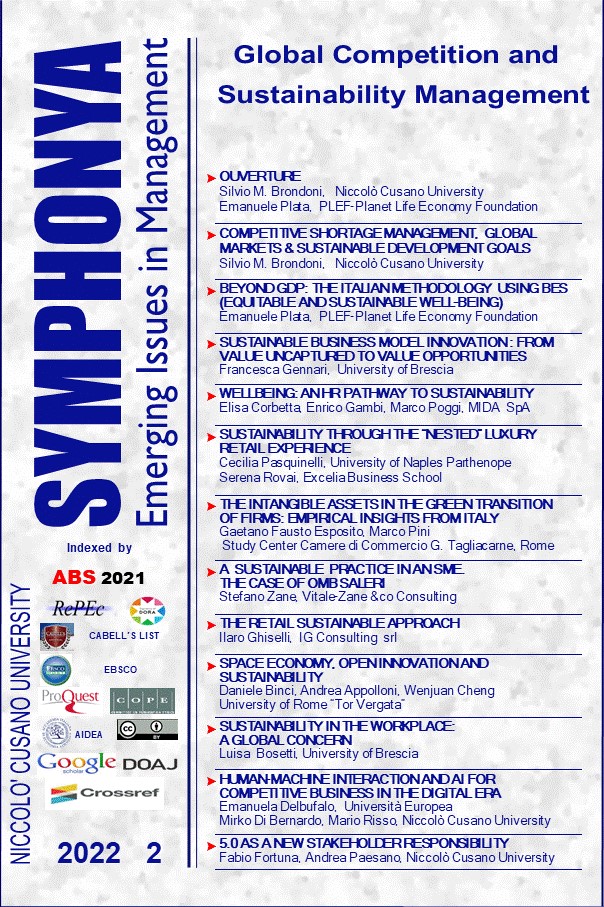Sustainability Through the “Nested” Luxury Retail Experience
DOI:
https://doi.org/10.4468/2022.2.06pasquinelli.rovaiKeywords:
Luxury Store Experience, Sustainable Retailing, Concept Store, City Brandscape, Global Markets, Fashion CityAbstract
The sustainable luxury retailing debate remains in its infancy, with a gap concerning the modalities to integrate sustainability into the luxury retail brand experience. This paper aims to shed light on the sustainability implications for competitive luxury stores embedded in their hosting cities. It addressed the relationship between place and luxury retailing, discussing the research hypothesis of the store-hosting city connections as modalities to integrate sustainability into the luxury store experience.
This study proposes two case studies, Favotell in Shanghai (China) and Luisaviaroma in Florence (Italy). A cross-case analysis supports the definition of a multi-level framework explaining the concept store experience. The three “nested” spatial levels are the store, the fashion city and the urban brandscape. Findings reveal drivers facilitating, differentiating, and innovating the luxury store experience and suggest research avenues on the social and territorial dimensions of sustainable retailing.
Downloads
Published
How to Cite
Issue
Section
License
Copyright (c) 2022 Symphonya. Emerging Issues in Management

This work is licensed under a Creative Commons Attribution 4.0 International License.
The authors retain all rights to the original work without any restrictions.
License for Published Contents

You are free to copy, distribute and transmit the work, and to adapt the work. You must attribute the work in the manner specified by the author or licensor (but not in any way that suggests that they endorse you or your use of the work).
License for Metadata

Symphonya published articles metadata are dedicated to the public domain by waiving all publisher's rights to the work worldwide under copyright law, including all related and neighboring rights, to the extent allowed by law.
You can copy, modify, distribute and perform the work, even for commercial purposes, all without asking permission.



